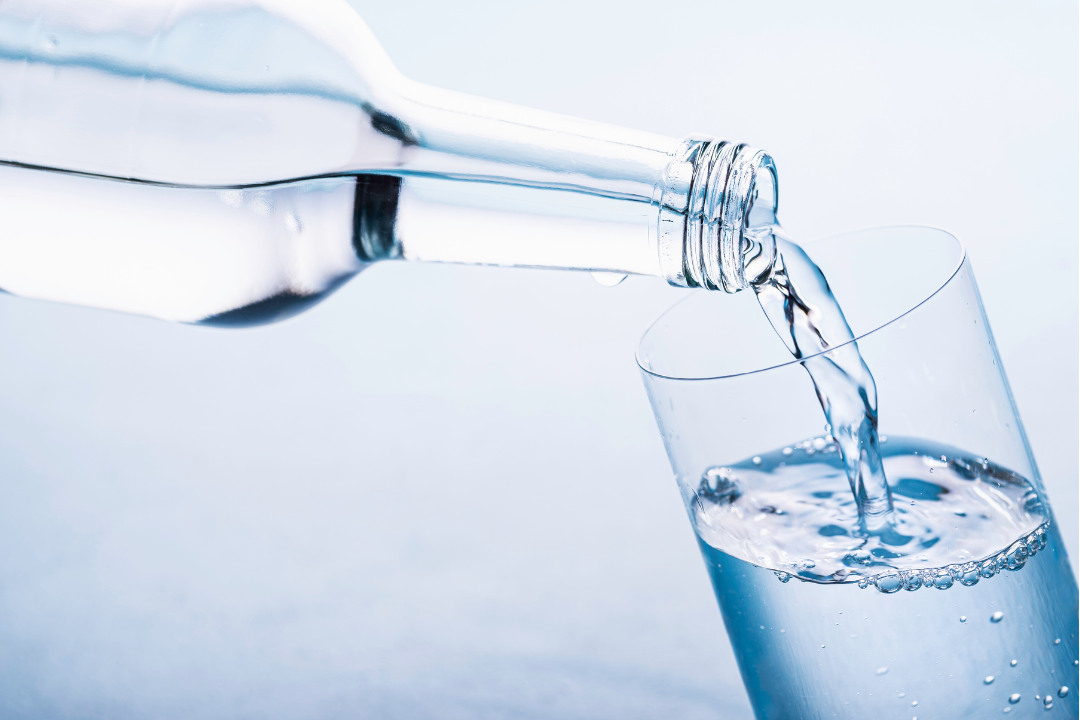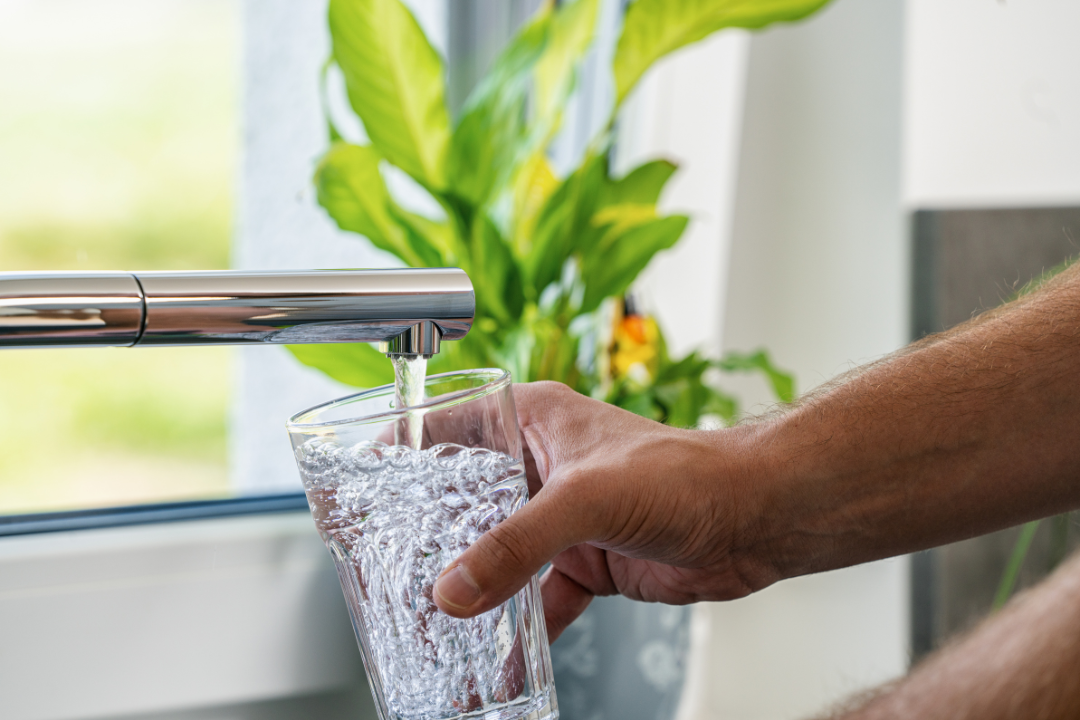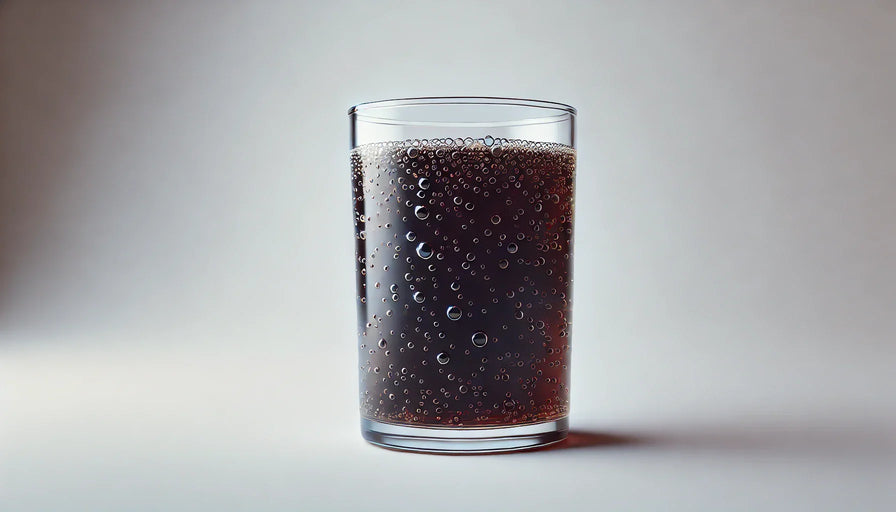
What is Alkaline Water?

What is alkaline water?
Alkaline water is characterized by its higher pH level compared to regular drinking water. Generally, it has a pH ranging from 8 to 9.5, achieved through natural mineralization or devices like water ionizers.
In our quest for healthier lifestyle choices, beverages play a crucial role. Among these, alkaline water has garnered significant attention for its potential health benefits.
Alongside alkaline water, there is a rich variety of carbonated beverages available that offer both refreshment and health benefits. Let's dive in and learn more about what makes alkaline water so special!
Table of contents
Benefits of alkaline water
Acid reflux relief
One frequently mentioned benefit of alkaline water is its potential to alleviate acid reflux. Research indicates that a higher pH level can neutralize stomach acid, offering relief from symptoms like heartburn and indigestion.
Hydration improvement
Alkaline water is said to be more easily absorbed by the body, enhancing hydration levels. Especially for individuals who lead an active lifestyle, alkaline water might improve overall hydration efficiency.

Antioxidant properties
Proponents suggest that alkaline water contains antioxidative properties which can help in fighting free radicals, thereby contributing to a reduction in oxidative stress and promoting overall health.
Bone health
There is some belief that alkaline water may influence the alkaline balance in the body, potentially supporting better bone health by reducing calcium loss from bones.
Blood pressure and diabetes management
Some studies hint at the possibility that alkaline water could help in managing conditions such as high blood pressure, diabetes, and high cholesterol by promoting better metabolic functions.
Detoxification
Alkaline water might aid in the detoxification process by flushing out toxins more effectively, leading to improved skin health and overall wellness.

How to make alkaline water
Here are several methods to create alkaline water at home:
- Water Ionizer: A popular choice, this device uses electrolysis to separate acidic and alkaline components in water.
- Baking Soda: Dissolve about 1/8 teaspoon of baking soda in an 8-ounce glass of water. Its high alkaline content raises the water's pH level.
- pH Drops: Highly concentrated and easy to use, pH drops can quickly elevate the water's pH level. Follow the product's instructions for proper dosage.
- Adding Mineral Salts: Mineral salt products are available that, when dissolved in water, can increase their alkalinity. These are typically added in small amounts as per the product guidelines.
- Using Alkaline Water Pitchers: These pitchers come with filters that can raise the pH level of water. Simply pour tap water into the pitcher and let the filter do the work.
Did you know that tap water is considered aerated water? Learn more about this phenomenon!
Mineral water vs alkaline water
Mineral water and alkaline water each offer unique benefits and characteristics, making them distinct yet beneficial in their own ways. The main difference between them is their pH level.
Mineral water is sourced from natural springs and is rich in essential minerals such as calcium, magnesium, and potassium, contributing to its distinct taste and health benefits. These minerals are naturally occurring and can support various bodily functions, particularly in maintaining proper electrolyte balance.
We dive deeper into the topic of mineral water in our blog, "Mineral water vs sparkling water: What's the difference?"

On the other hand, alkaline water has a higher pH level, typically between 8 and 9.5, achieved either through natural mineralization or water ionization. While alkaline water proponents suggest benefits like improved hydration and acid reflux relief, these claims are still under scientific scrutiny.
Unlike mineral water, which is valued for its natural composition, the primary appeal of alkaline water lies in its potential to balance the body's pH levels.
Ultimately, both types of water can be a part of a healthy diet, making the choice dependent on individual preferences and health goals.
Learn more about mineral water on our deep dive comparison to spring water!
Alkaline water vs regular water
When comparing alkaline water to regular water, the primary distinction lies in their pH levels.
Regular water typically has a neutral pH of around 7, while alkaline water has a higher pH, usually between 8 and 9. This elevated pH is thought to reduce acidity in the body and may offer benefits such as improved hydration and potential antioxidant effects.
Proponents of alkaline water argue that it can help counteract the effects of an acidic diet and lifestyle, which are believed to contribute to various health issues.
However, scientific studies on these claims remain limited, and more research is needed to establish definitive health benefits.

Common FAQs on alkaline water
Is alkaline water good for you?
The benefits of alkaline water are still a subject of ongoing scientific research.
Some proponents argue that it can contribute to a range of health benefits, however, there is limited evidence to substantiate these claims, and health experts generally agree that most people can achieve optimal health with regular, well-balanced water intake, still or sparkling!
What does alkaline water taste like?
Alkaline water typically has a smoother, more refreshing taste compared to regular tap water. Its higher pH level can impart a slightly bitter or soapy flavor due to the presence of minerals such as calcium and magnesium.
Many people find it more palatable, especially those who are sensitive to the taste of tap water or dislike the chlorine odor commonly found in it.
How much alkaline water can I drink a day?
While there is no universally accepted guideline for daily alkaline water intake, it is generally recommended to start slowly and observe how your body responds.
A common suggestion is to drink between 8 to 12 glasses (2 to 3 liters) of alkaline water per day, but this can vary based on individual needs and health conditions. It is advisable to consult with a healthcare professional before making significant changes to your water consumption, particularly if you have any pre-existing health issues.
Moderation is key, as excessive consumption of alkaline water can lead to imbalances in stomach acidity and potentially disrupt normal digestive functions.
Related read: What's the Difference Between Soda Water and Sparkling Water?

Is alkaline water good for kidneys?
The impact of alkaline water on kidney health is a topic of ongoing research and debate. Some proponents argue that the alkaline nature of the water can help reduce the acidity of urine, which may potentially lower the risk of kidney stones formed from uric acid.
However, there is limited scientific evidence to firmly support these claims. For individuals with pre-existing kidney conditions, particularly those related to impaired kidney function, consulting a healthcare provider before making any changes to water intake is crucial.
Excessive consumption of alkaline water may disrupt the body’s natural acid-base balance, potentially overburdening the kidneys.
Therefore, while moderate consumption might not pose risks to healthy individuals, personalized medical advice should guide any significant alterations in water consumption.
Summary
Considering the current research and various anecdotal claims, alkaline water presents both potential benefits and areas of caution. Some of the reported advantages include improved hydration, antioxidative properties, support for bone health, aiding in detoxification, and possible management of conditions such as high blood pressure and diabetes.
However, it is crucial to note that the scientific backing for many of these claims remains inconclusive, warranting the need for further studies to provide definitive answers.
Before incorporating alkaline water into your daily routine, especially in large quantities, it’s advisable to start slowly and monitor your body’s reaction. Seek guidance from healthcare professionals, chiefly if you have existing medical conditions or take medication regularly.
Recommended reading

How to Give Back During Thanksgiving 2025
Key takeaways Thanksgiving is a time to express gratitude and share with those in need. From volunteering at local shelters to donating food and essentials, there are numerous ways to give back to...

What Does Carbonation Do to Your Body?
What does carbonation do to your body? Carbonation alone typically has minimal effects; however, it can cause bloating and discomfort for some, and it may worsen acid reflux due to carbon dioxide ...

What Are the Health Benefits of Sparkling Water?
Summary Sparkling water isn't just a refreshing drink—it comes with surprising health benefits too. From aiding digestion to improving hydration, discover how sparkling water can be a healthy addi...